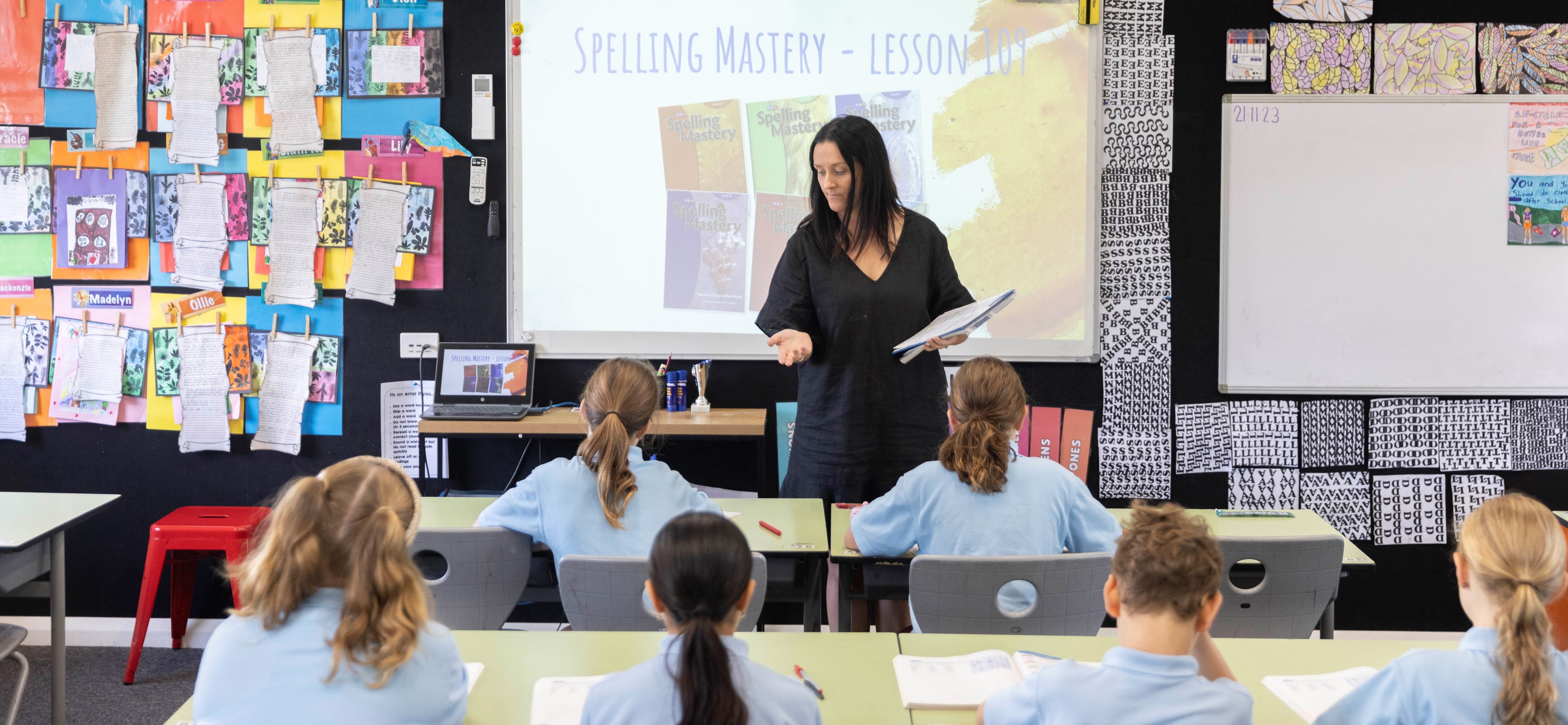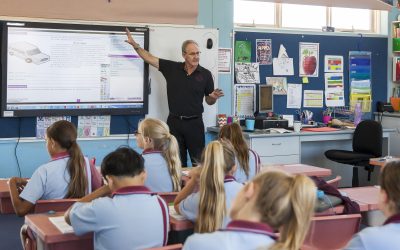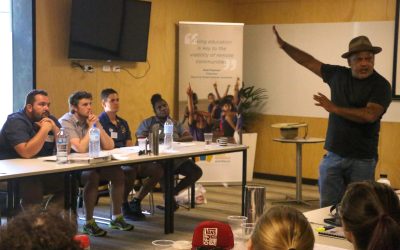Every three to six years my work suffers a torpedo hit from the media that hurts. Not in a personal sense, because I have been through enough episodes in my public life to have a perspective that it comes with the territory.
The hurt I worry about is to my work on behalf of the betterment of our people. In land rights. In welfare reform. In combating grog and drugs. In promoting the great talents and potential of our young. In strengthening our families as the ground zero of change. In their better health and education. In constantly pushing for more opportunity from Australia for our people. And our people’s responsibility in turn.
I work with hundreds of people from my world and Australians of goodwill and generosity who are helping us. They do tremendous work and achieve great things. Not everything is despair and misery. There is much movement at the station. Families are getting their show together. Kids are getting educated. Money is being carefully managed. Possessions are accumulating. Individuals and families are responding to opportunity and responsibility. We bridge rights and responsibilities. Freedom and obligations. Culture and economics. Families and communities. Recognition and citizenship. History and the future.
The last time a torpedo hit was when the school in the community of Aurukun was removed from the Cape York Aboriginal Australian Academy. Six years of arduous work that saw unprecedented 70 per cent school attendance rates. The Queensland government took over and attendance fell to little more than 30 per cent.
This is the hurt that hurts.
On Saturday, The Sydney Morning Herald published a hit piece by its education journalist, Natassia Chrysanthos. The headline is lurid: Millions flow to Noel Pearson’s education venture against department advice.
There are three contentions underlying the Herald’s attack.
The first is the commonwealth Education Department advised against funding the organisation I co-chair, Good to Great Schools Australia. Chrysanthos relies on a briefing note including a draft letter the department advised the minister in late 2019 to send to me.
The circumstance was that a three-year trial of direct instruction literacy support to 40 remote schools – Indigenous and non-Indigenous – from 2015 to 2017 had ended. It was extended for 20 schools in 2018 and 10 schools in 2019. The evaluation by Melbourne University was not yet finalised and would not be until the following year. In the meantime 10 schools were depending on support. They would be left in the lurch if then education minister Dan Tehan had not extended the program for another year.
Where the department’s brief was bad was when it tried to get the minister to preclude long-term funding. How could the departmental officer expect the minister to predetermine the government’s response ahead of the evaluation? Essentially, the officer was telling the minister to tell us: “This is the last of the money. You won’t be getting anymore next time. No matter what the evaluation says. Go and talk to the states and territories.”
The Herald article misrepresents these circumstances.
The second contention is the literacy program had “mixed results” and evaluators did not think it was “ready for scale”. The Herald article acknowledges late in the piece that some schools had “tremendous success” with the program and “analysis of NAPLAN data found most schools improved their average literacy results”. The results were, indeed, mixed. Across Catholic and state schools. Across Western Australia and the Northern Territory. At schools with higher attendance and lower. At schools with stable teaching forces and those with annual turnover. With all these qualifications, the evaluation states upfront the program succeeded in its two goals: to lift student achievement and to lift teacher skills in teaching literacy. The problem for remote schools is that teachers upskill in the program then leave these communities.
The article fails to disclose Chrysanthos reported on the outcomes of the program in a Herald report in April 2020. She uncritically reported a study by two academics associated with the Batchelor Institute in the Northern Territory who claimed they had analysed the NAPLAN results for 25 schools in very remote communities and found they had performed worse than similar schools. However, these researchers presented snapshot – point in time – achievement data for these schools, rather than measuring student growth between two points in time. That is, to compare Year 3 results in one year to Year 5 results in two years’ time.
Using this growth measure, I presented results in the Australian Journal of Indigenous Education in June 2020 that students using direct instruction achieved significantly higher growth rates in two periods – from 2015 to 2017 and 2017 to 2019 – than other remote schools and Australian schools generally. Students who are so far behind their mainstream peers can grow dramatically if you teach them properly, and if they are present in the classroom. When a child starts a 100m race from 50m behind the starting line, they can be supported to start closing the gap. But when the race ends and these kids are still at the 50m mark, how fair is it to ignore the ground they made up? Yes, they were still behind their Year 5 and Year 7 NAPLAN peers, but they were closing the gap.
The efficacy of direct instruction is clear. The opinion that the program was not ready for scale was reasonable when the old model involved face-to-face training and visits to schools by program experts. However, a new model was developed that provides professional learning to teachers online, accessible in their own time. This model is technology-based and does not depend on face-to-face school visits. Tehan’s funding approval for 10 schools and Education Minister Alan Tudge’s approval for 10 more schools is based on this new platform. The platform solves the challenge of scale.
Chrysanthos’s third contention concerns staffing at Good to Great Schools. Non-government organisations are on short funding cycles and can only offer fixed-term contracts to staff. Many staff are contractors who do specific jobs and leave. Only a minority of staff are permanent employees. Not many organisations are immune from disgruntled staff who gather on social media sites and complain about their experiences. The board of our organisation has policies governing workplace behaviour by employees and management and, where necessary, engages independent investigators to deal with complaints.
I am proud of the organisations I work with in Cape York Peninsula. They are highly productive and work at the cutting edge of social innovation. Striving to be “break through” with our reform agendas is what drives these organisations and the people who work for them.
Noel Pearson is co-chair of Good to Great Schools Australia and a director of Cape York Partnership.



